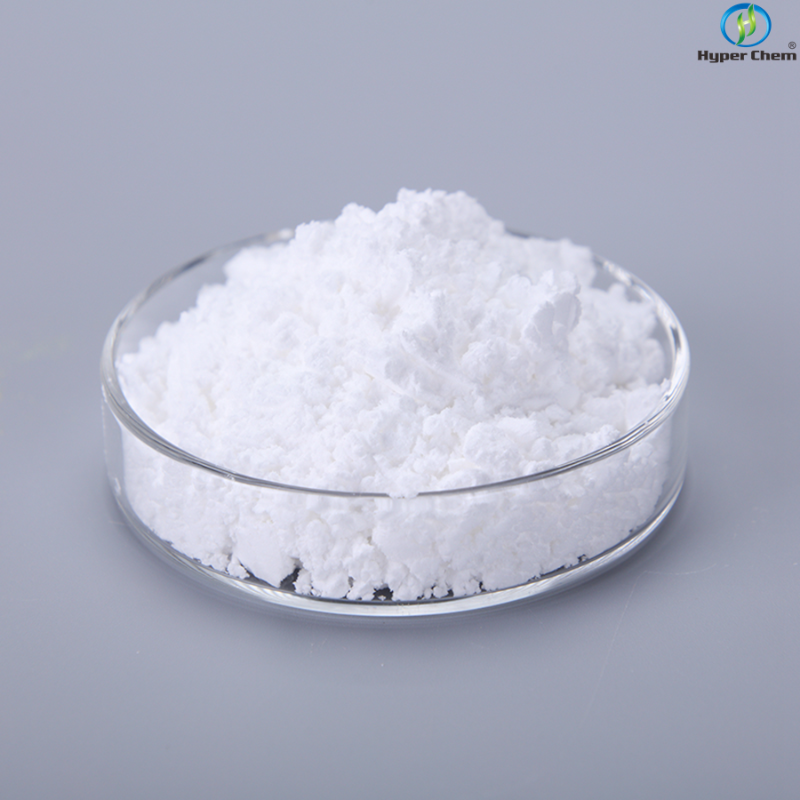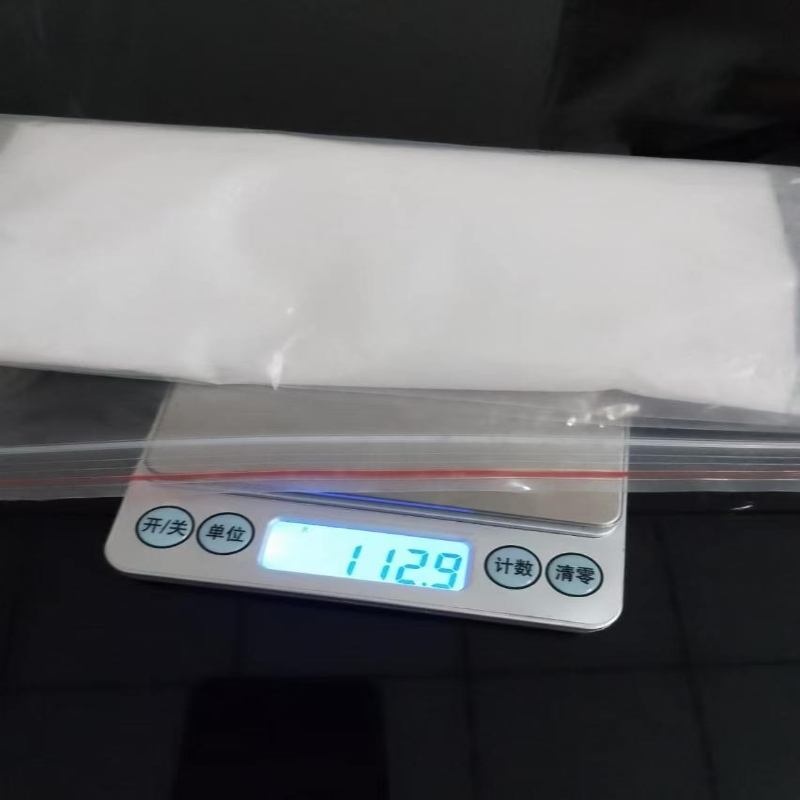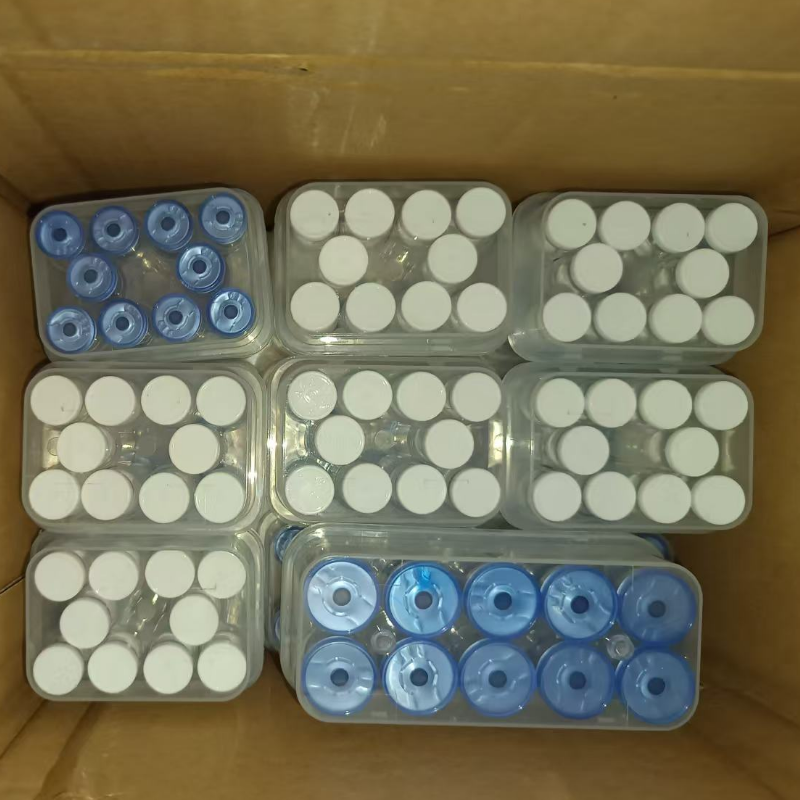-
Categories
-
Pharmaceutical Intermediates
-
Active Pharmaceutical Ingredients
-
Food Additives
- Industrial Coatings
- Agrochemicals
- Dyes and Pigments
- Surfactant
- Flavors and Fragrances
- Chemical Reagents
- Catalyst and Auxiliary
- Natural Products
- Inorganic Chemistry
-
Organic Chemistry
-
Biochemical Engineering
- Analytical Chemistry
-
Cosmetic Ingredient
- Water Treatment Chemical
-
Pharmaceutical Intermediates
Promotion
ECHEMI Mall
Wholesale
Weekly Price
Exhibition
News
-
Trade Service
January 29, 2021 // -- BeiGene recently announced that the EVALUATION 302 Global Phase 3 clinical trial evaluating the treatment of esophageal squamous cell carcinoma (ESCC) against the anti-PD-1 antibody Bazean®
RATIONALE 302 is a randomized, open-label, multi-center Global Phase 3 clinical trial (NCT03430843) conducted in patients with late-stage non-removable or metastasis ESCC who have previously underwent systemic therapy and evaluated the efficacy and safety of the chemotherapy chosen by the researchers®.
the main endpoint of the trial was total lifetime (OS) in the intentional therapy (ITT) population.
A total of 512 patients from 11 countries across Asia, Europe, and North America were included in the trial, randomly reaching the Perseid®therapy group or chemotherapy treatment group in a 1:1 ratio (the drug options included yew alcohol, dositsin, or elixicon) selected by the researchers.
results showed that the study reached its main endpoint: in the ITT population, the Bezean®therapy group achieved statistically and clinically significant improvements in OS compared to the chemotherapy group.
the study, the security data of ® was consistent with known risks and no new security warnings were issued.
plans to communicate with regulators around the world about the results of the RATIONALE 302 trial and release the data at a subsequent medical conference. "We are very excited to have observed in another Phase 3 clinical trial that Bazean ® can bring total lifetime benefits to patients compared to labeling therapy chemotherapy," commented Dr. Yu Yong, Chief Medical Officer of Oncology Immunology, Baiji Shenzhou,
.
this is the fourth and first phase of clinical trials to have positive results in a wide range of gastrointestinal clinical programs, including liver, stomach and esophageal cancers, published by Bezean ®.
is currently evaluating Bazean ® in multiple tumor species and will gain more clinical evidence from it, and we look forward to bringing this potentially differentiated anti-PD-1 antibody to patients around the world.
"Bezean® (Single Reilly Pearl monoantigen injection) is a humanized IgG4 program-resistant death subject 1 (PD-1) monoclonal antibody designed to minimize binding to the Fc gamma in macrophages.
preclinical data show that Fc gamma in macrophages binds to activate antibodies that rely on cell-mediated killer T-cells, thereby reducing the anti-tumor activity of PD-1 antibodies.
® is the first drug developed by baiji Shenzhou's bio-platform for immuno-oncology, and clinical trials of single-drug and combination therapies are under way to develop a range of broad-based adaptations to solid and blood tumors.
China's State Drug Administration (NMPA) has approved Thermolympic® combination chemotherapy for the treatment of patients with first-line advanced squamous non-small cell lung cancer (NSCLC).
Bzean® was also conditionally approved for the treatment of patients with relapsed or refractic classic Hodgkin's lymphoma who had underwent at least second-line system chemotherapy, as well as patients with PD-L1 highly expressed platinum-containing chemotherapy failures including localized late stage or metastatic urethra cancer that progressed within 12 months of new assisted or assisted chemotherapy.
approval for both adaptations will depend on the results of a confirmed randomized controlled clinical trial.
In addition, the NMPA Drug Review Center (CDE) has accepted two new adaptive drug listing applications from Bezean and is in the process of reviewing them, including a combination of chemotherapy for the treatment of patients with first-line advanced non-scaly NSCLC and one for the treatment of previously treatable patients with non-excisive hepatocellular carcinoma.
currently has 15 registered clinical trials in China and around the world®, including 13 Phase 3 clinical trials and 2 critical Phase 2 clinical trials.
January 2020, Baiji Shenzhou and Novarma reached a cooperation and licensing agreement to develop, produce and commercialize Bazean in North America, Europe ®.
deal is expected to take effect in the first quarter of 2021, provided that the waiting period under the Hart-Scott-Rodino Antitrust Improvement Act expires or terminates early.
esophageal cancer (Photo: medindia.net) esophageal squamous cell carcinoma (ESCC) is the world's most common subsype of esophageal cancer.
is the sixth leading cancer-related cancer in the world, with more than 600,000 new esophageal cancers and about 550,000 deaths worldwide by 2020.
esophageal cancer is a rapid and fatal disease, with two-thirds of patients diagnosed with advanced or metastatic diseases.
esophageal cancer survives at about 8 to 10 months, while the five-year survival rate is less than 5%.
esophageal cancer immunotherapy, two PD-1 therapies have been approved, namely, the Mercado anti-PD-1 therapy Keytruda (Corida, generic name: pembrolizumab, Pabli-Pearl monotherapy) and the Hundred Mercer Squibb anti-PD-1 therapy Opdivo (Odivo, Navuliyu monotherapy).
, Keytruda is suitable for the treatment of patients with tumor expression PD-L1 (combined positive score (CPS≥10), relapsed, localized late stage, or metastasis ESCC after receiving one or more system therapies.
suitable for treating patients with non-removable advanced or relapsed esophageal cancer who progress after chemotherapy, regardless of PD-L1 status.
in China, Keytruda was approved by the State Drug Administration in June 2020 as a single-drug therapy for the treatment of patients with local late stage or metastatic esophageal squamous cell carcinoma (ESCC) who had failed previous system therapy treatments and tumor expression PD-L1 (combined positive score (CPS) ≥10).
this new adaptation is fully approved based on the total lifetime (OS) results of the Global Phase III KEYNOTE-181 trial, including extended data in patients in China.
() Origin: Baiji Shenzhou,







